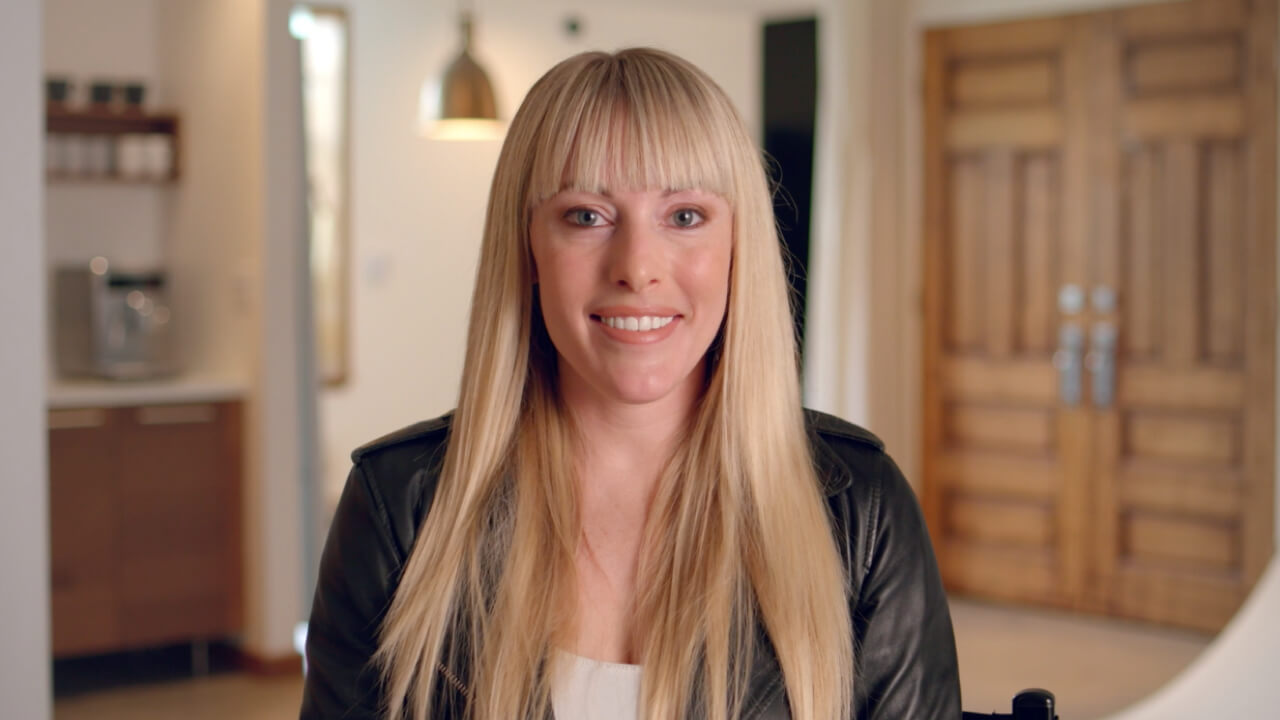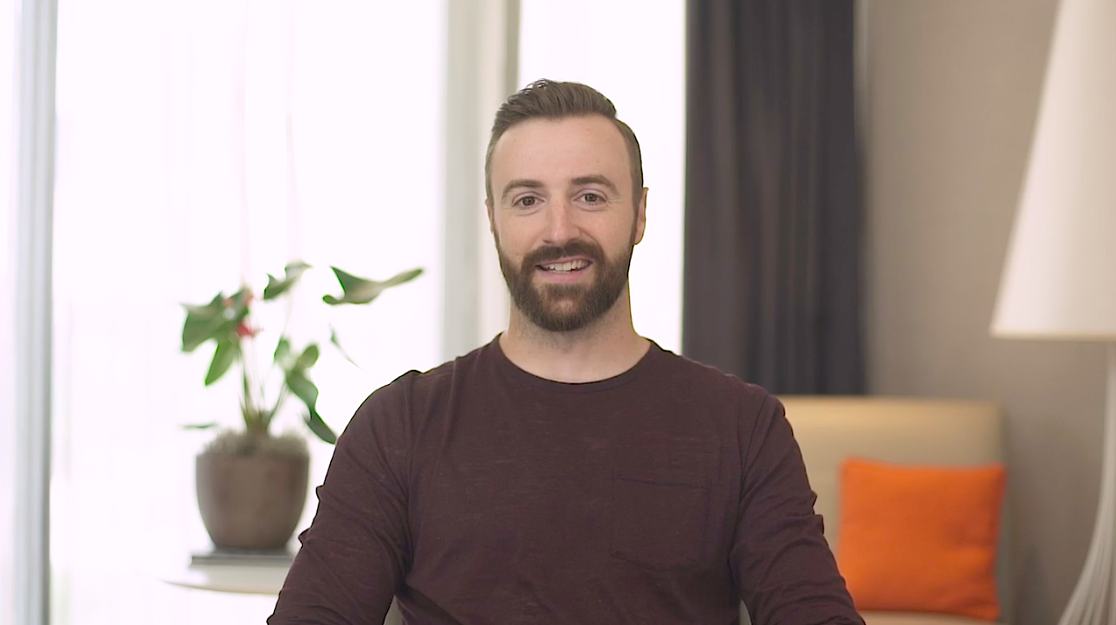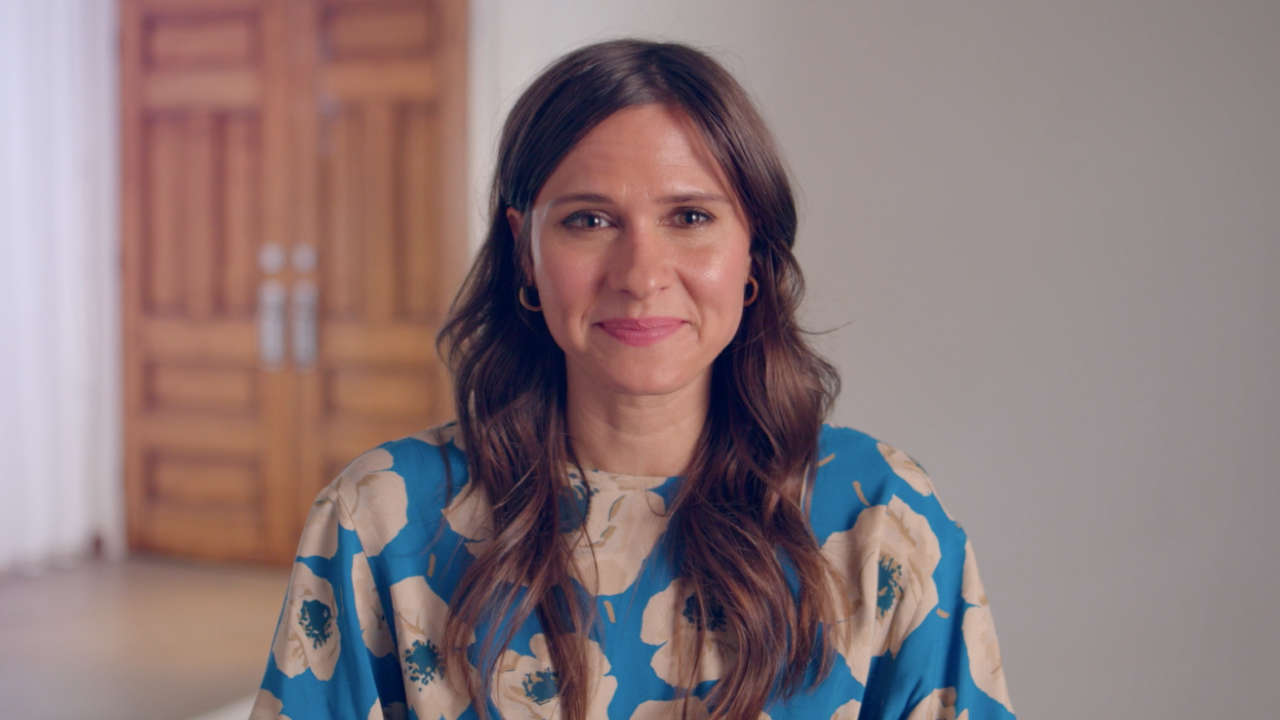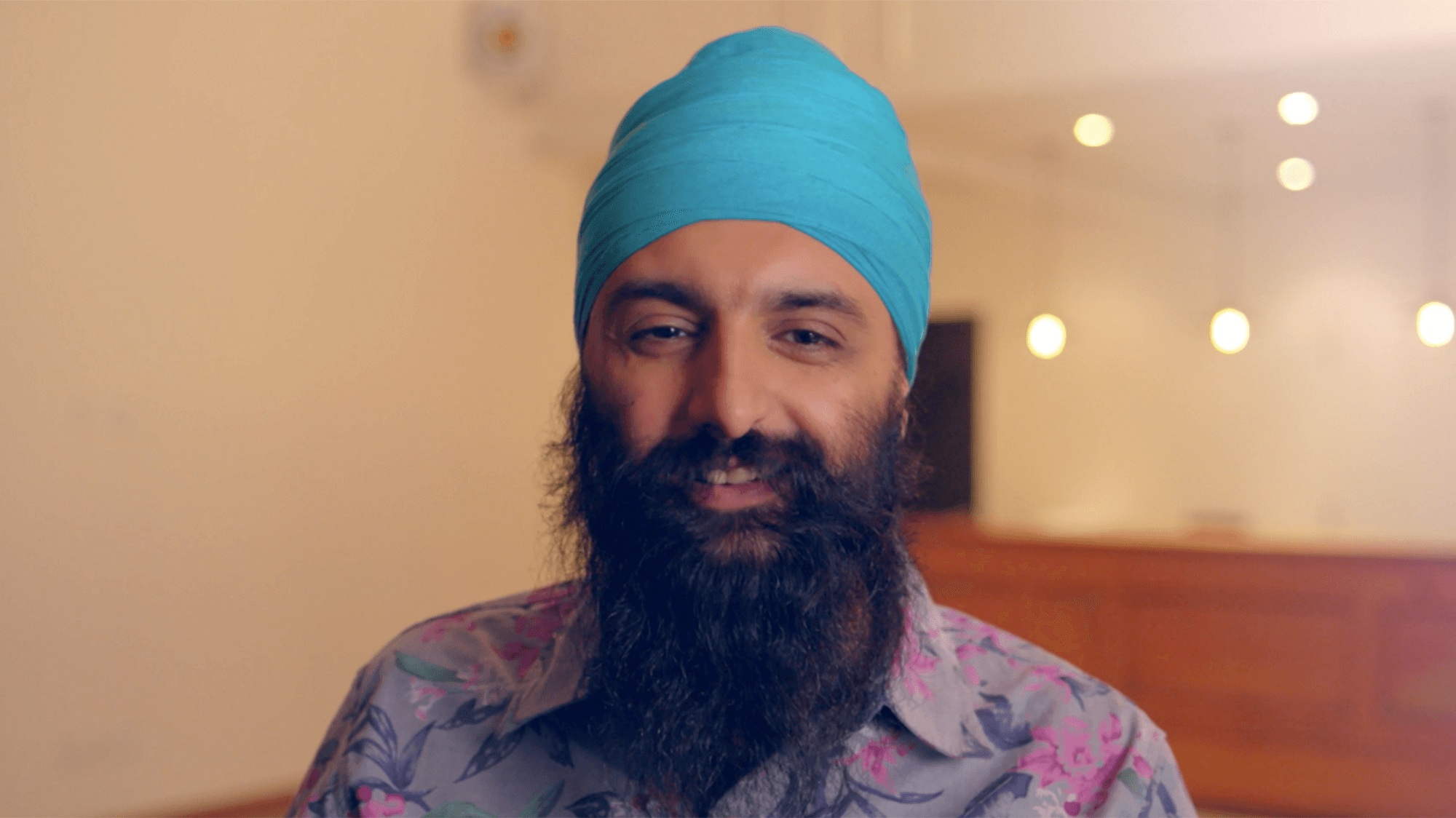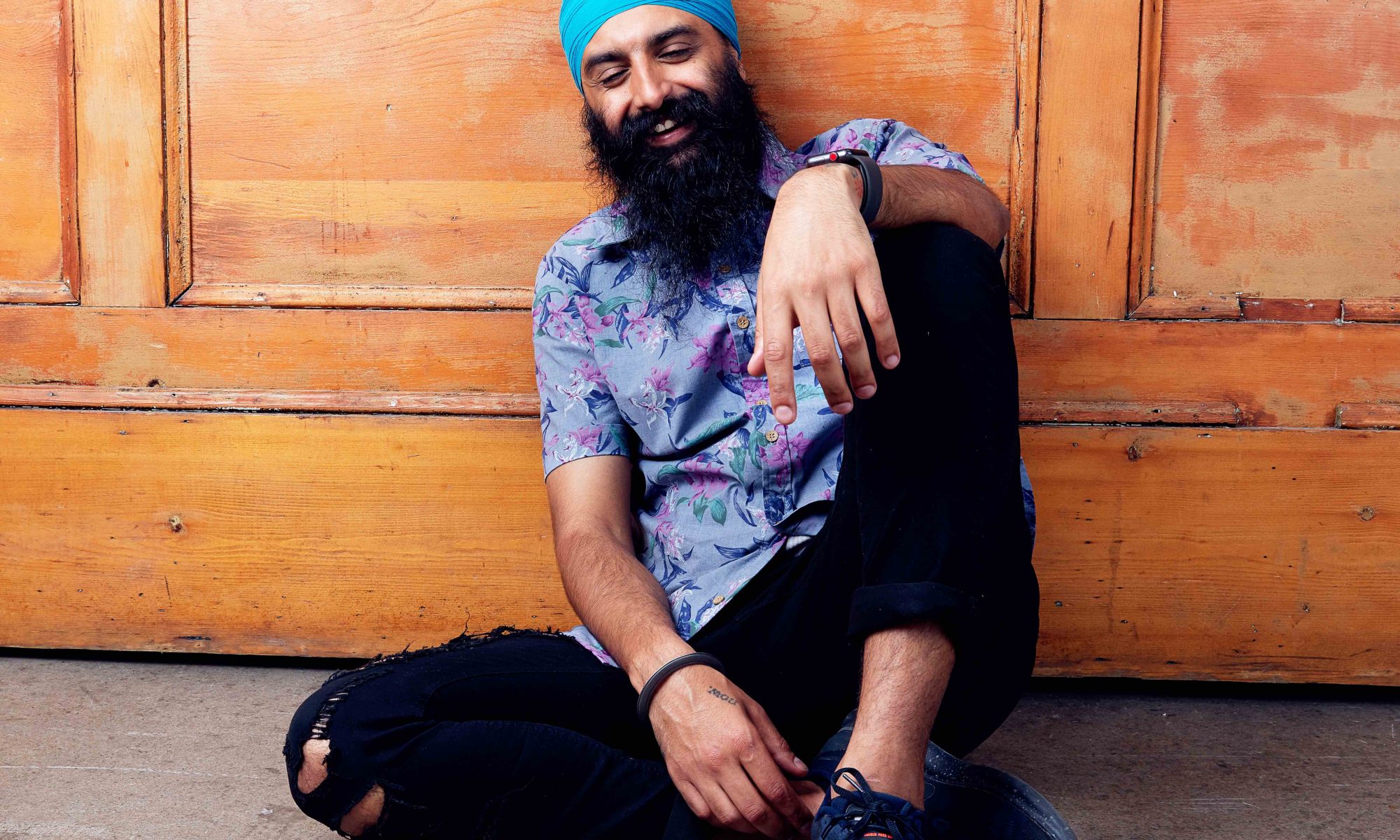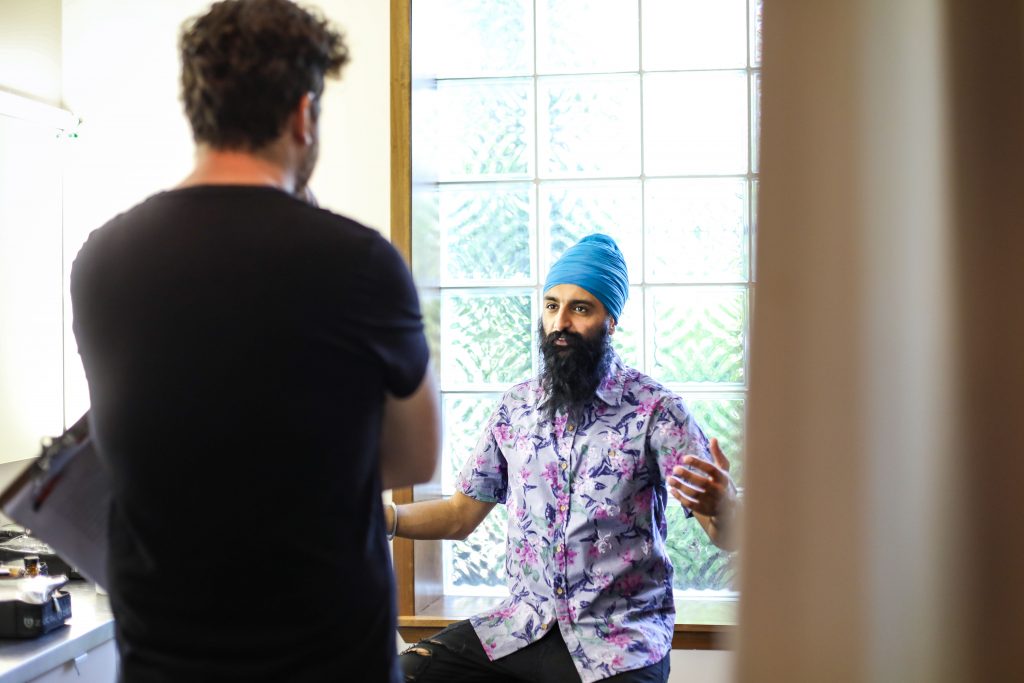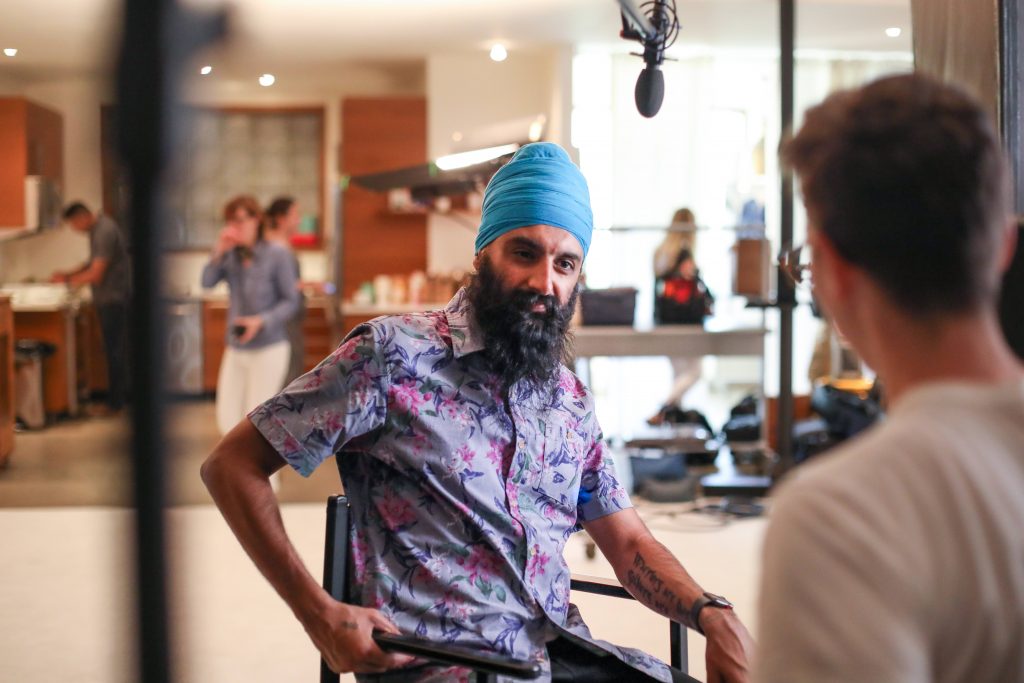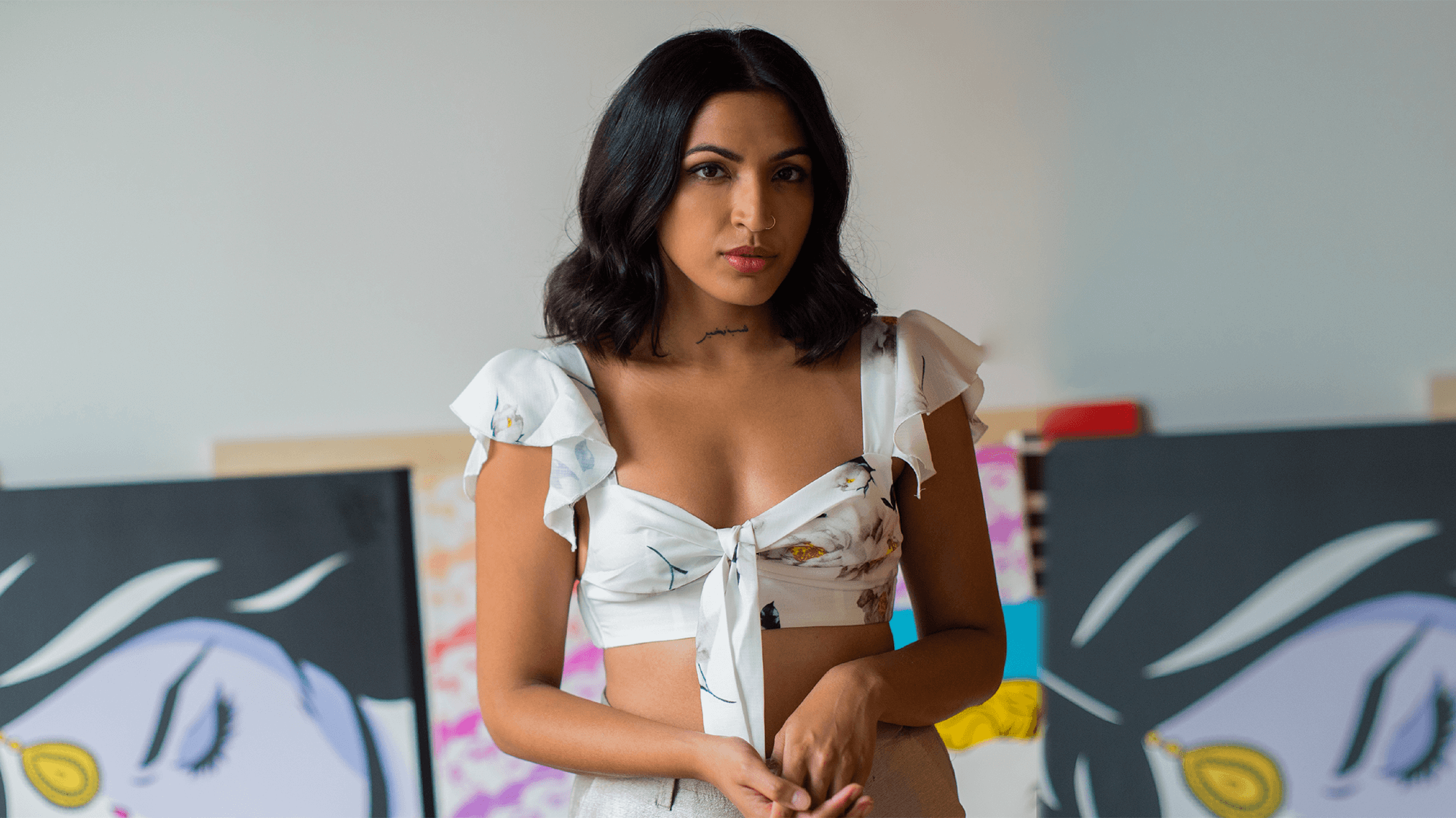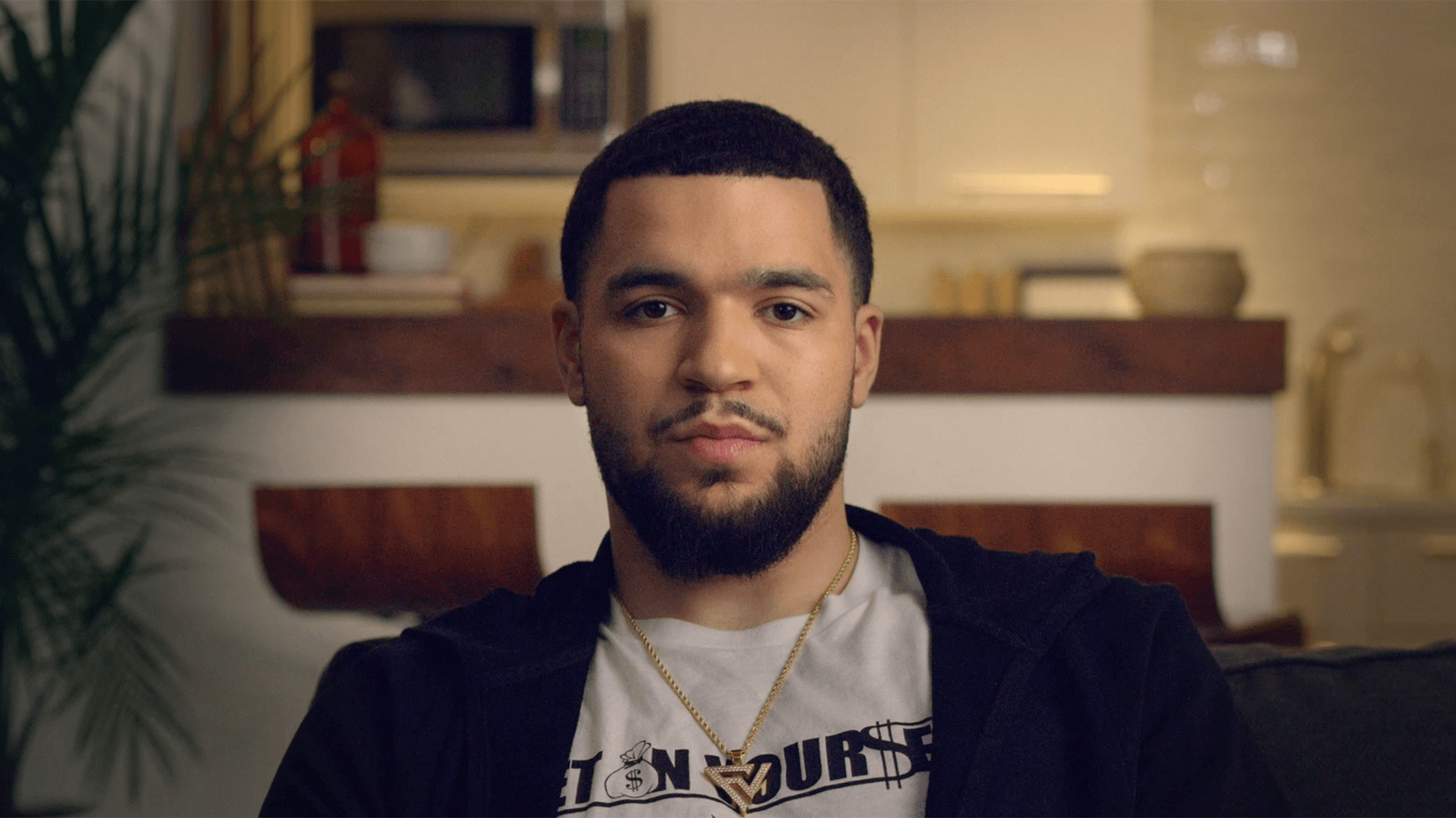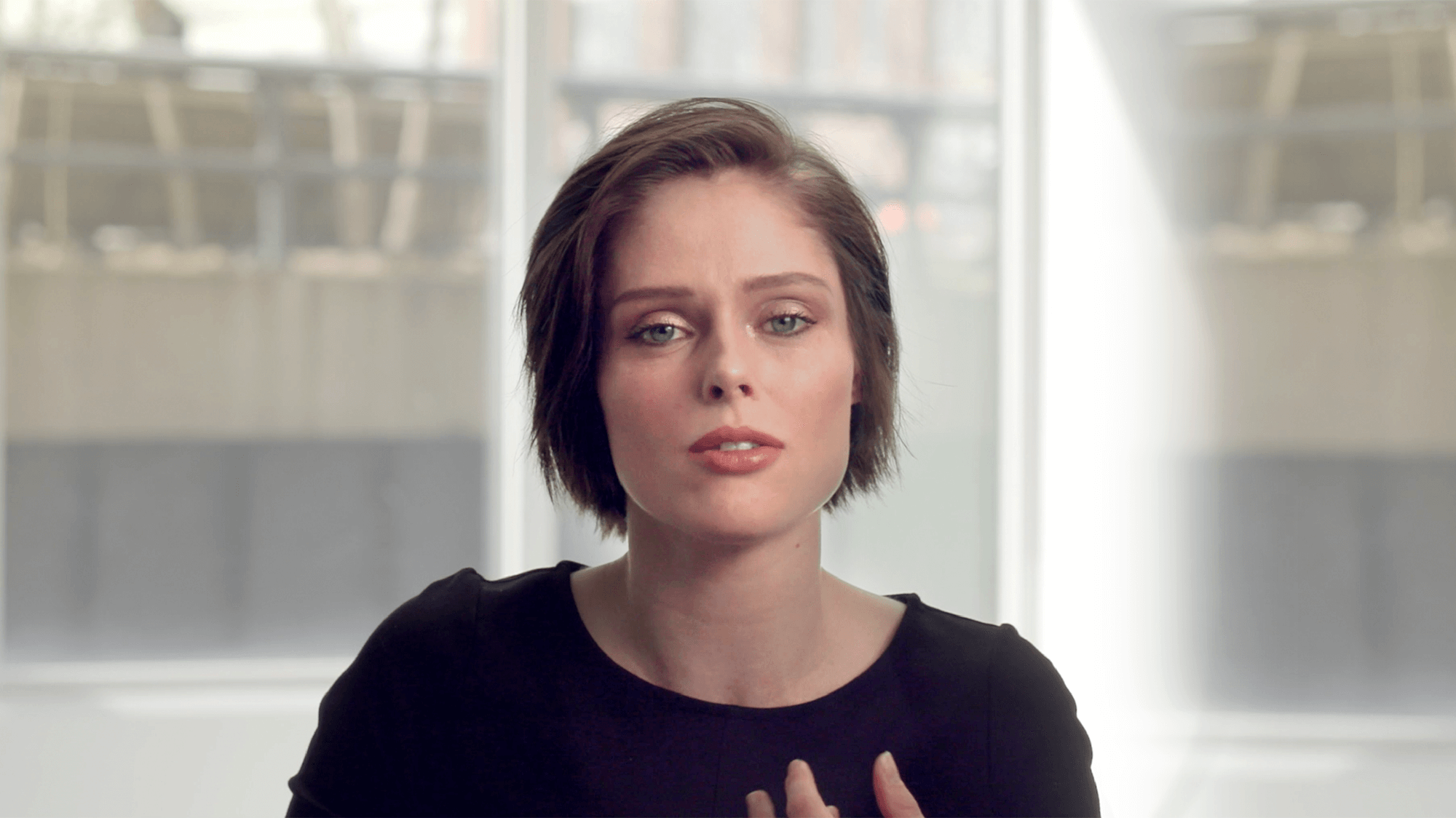As @Hatecopy, Maria Qamar blew up her groundbreaking brand of pop art on Instagram while smashing stereotypes. She manages her finances as creatively as she lives her life. As a multi-disciplinary freelancer with projects in progress around the world, she’s learned that money might be nice but the only currency she really cares about is creativity.
While growing up, Maria Qamar, a.k.a. Hatecopy, faced an endless stream of “friendly” suggestions about following a practical career path. Her parents thought she should be a doctor or a pharmacist, but Maria had her sights set on a different future. And she was right. Her decision to follow her creative instincts unlocked the freedom to pursue her real passions. And she’s never looked back.
From Instagram darling to international artist, Maria’s artistic career has been a long series of success stories. With over 130,000 Instagram followers, she’s now a thriving Toronto artist, a published author (with her Trust No Aunty an instant cult-classic) and a magazine-cover star, with a celebrity fan club that includes Mindy Kaling and Lena Dunham. Despite the Insta-worthy shine of her success, her story has been anything but smooth-sailing. No matter what life throws at her, she stays on course by staying true to her vision and following her heart.
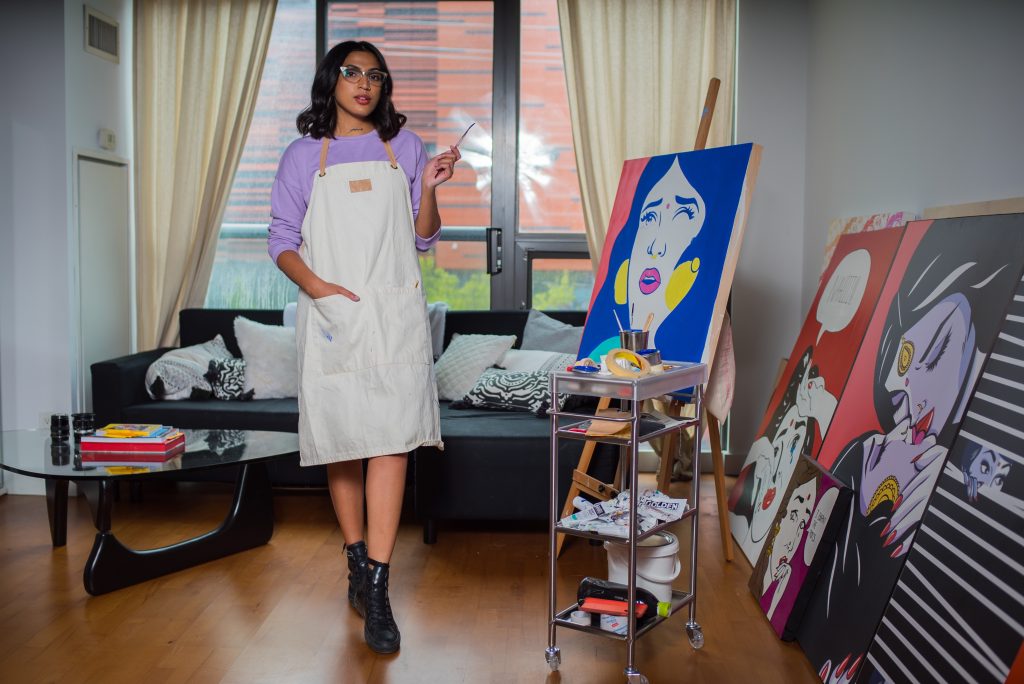
Photo: Warren Credo / A Beautiful World
On boldly being yourself paying off
All her life, Maria has been focused on creative pursuit. Moving to Canada from Pakistan at the age of nine, she turned to art when she felt alone or misunderstood. After a day of being teased at school, she would come home and sketch comic panels of what had happened. These nascent comics would always end the same way: with Maria the conquering heroine (foreshadowing, anyone?). This theme of triumph through self-reflection has continued throughout Maria’s career as an artist, evident in all she does.
[insert_gallery]
Through her work, Maria is speaking to women and men like her, who have grown up in western society with eastern roots. Her creative work, and often comedic commentary finds a way to speak to the balance and nuances of the two cultures, engaging new fans along the way. Maria’s artwork has been heavily in demand since she first started posting it on Instagram – proving to her parents (and all the other doubters) that a life in the arts can more than pay off. Inspired by pop artist Roy Lichtenstein and South Asian soap operas, she has created a style that’s all her own. As her artistry has evolved, so has her career. What started as casual Instagram posts has transformed to live beyond the screen and canvas, producing clothing, dinnerware, eyewear, tattoos, murals and much more.
“I didn’t realize that all you needed to attain clients was the confidence to post your work, good or bad, online. It’s all I ever did and it helped me to partner with some amazing brands and businesses.”
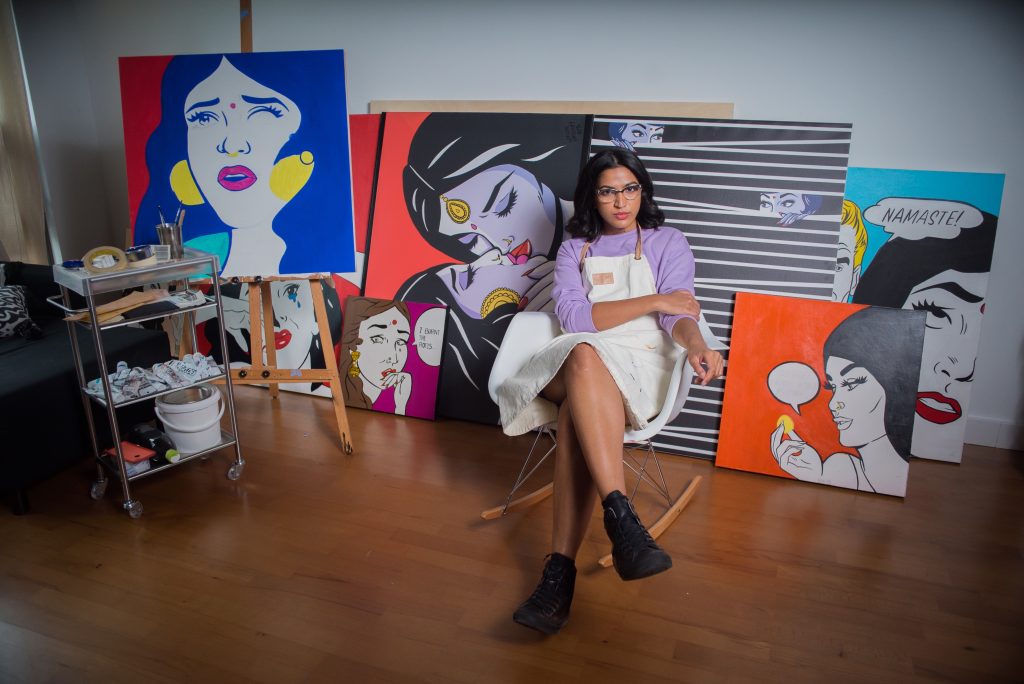
Photo: Warren Credo / A Beautiful World
On believing you can do it and actually making it happen
Though many would-be artists fear the stereotypical ‘starving artist’ life, Maria never allowed a fear of failure to prevent her from giving it her best shot. She refused to believe that art wasn’t a sustainable career option, believing instead that anything is possible if you’re creative enough to find a way to make it happen.
While her art is her main source of income (and has been for the past three years), the financial side of her business has never dictated how Maria creates. The financial incentives are nice, obviously, but rarely the main motive for a true artist. Sure, we all need to eat, pay rent, get around and splurge out at the spa once in a while, but Maria believes money should never dictate good creative. That being said, she always makes sure her clients understand the time, effort and physical labour that go intoeach custom piece and advocates accordingly for a price tag to match.

“Since [art] was a passion that became a profession, money never mattered much. Whatever I make from my artwork goes right back into creating more, so I’ve got a sustainable way to live as a happy creative now.”
On using your own rules to define your worth
Having never known a life that didn’t include a stream of “friendly advice,” Maria was often getting ‘suggestions’ – often on her choice of career – from her family and large network of “aunties” (read: female family members and friends, often full of often-unsolicited counsel). The stigma towards the arts that many parents cultivate in their families can keep kids from pursuing creative fields altogether. Maria was encouraged to attend business school as a way to stay away from the arts, and follow a career path that her family viewed as more stable, despite the knowledge that women and especially women of colour receive less pay than their male counterparts in this supposedly stable corporate world. In fact, the money she earned as a copywriter wasn’t much to begin with, proving that the safest road isn’t always the most profitable (and almost never the most fun).
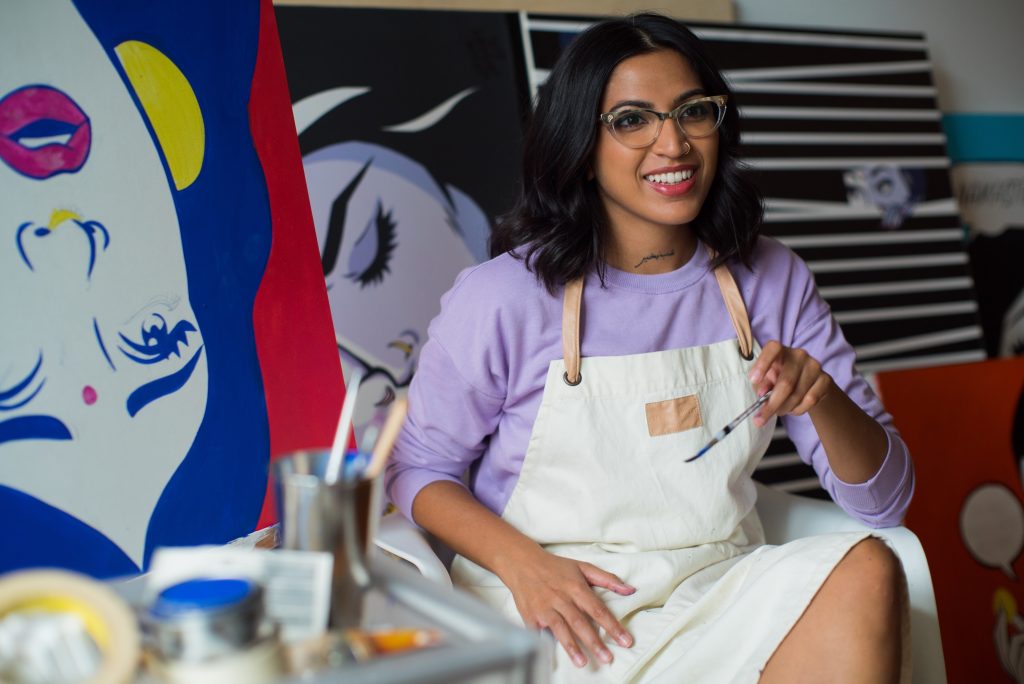
Photo: Warren Credo / A Beautiful World
Maria’s story is an anecdote for the ages, showing the true value of putting stock in yourself. She’s never used her bank balance, job title, or relationship status to gain a sense of self or define her worth. It’s always been about her ability to creatively solve problems. It’s that creativity that has helped contribute to her success, and allowed her the financial freedom to travel and invest in new tools and experiences that will help her to create new art, a self-fulfilling prophecy that will sustain her for years to come.
If Maria had a nickel for every piece of aunty-advice, she may never need to pick up a paintbrush again. But the one piece of advice she holds firm is never forget your identity. Words of wisdom worth more than any corporate pay cheque or hefty commission. And if she ever needs a little extra financial advice? She can always turn to one of the many accountants in the family.
“I always knew I was going to be an artist and I always knew I would find a way to express myself to the world. I just didn’t know when. The confidence in my work and the support from my community pushes me every day to be better than the day before.”
All artwork created by Maria Qamar. All photography created by Warren Credo / A Beautiful World for STACK Sessions.
STACK is a smarter way to manage your money. STACK Stories is part of our mission to help you become the master of your money by starting honest financial conversations.

